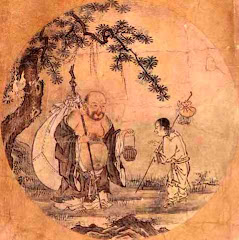
The positive person has to become assertive; he has to come into the light. Otherwise the world is left in the hands of the negative people, and these negative people are the cause of preventing others from seeking and searching.
I have always liked a story by Turgenev -- a Russian novelist, one of the best the world has ever known. If you are going to choose ten great books, you will have to give one place to Turgenev without fail. Out of all the literature in all the languages in the world, he may claim more, but one is absolutely certain. He has written a small story, THE FOOL.
In a small village there was a very simple man. His simplicity was such that he almost looked like a simpleton, and the whole village condemned him as the idiot. Out of his simplicity he used to do things, and the cunning people all around condemned him. He became so much afraid even to say a single word, because whatever he would say, he would be immediately criticized, condemned. He became afraid of acting, of doing anything; his life became a hell. And at that time, a mystic passed through the village. The idiot reached the mystic and told his tragic story, asking, "You help me do something ...."
The mystic said, "Who says you are an idiot? You are a very simple, innocent being. Out of your innocence you do things which are going to be against the ideas of the cunning and the clever.
"You do one thing -- I will be coming back on the same route within a month, so I can check whether it works or not -- I will tell you a simple secret. From tomorrow morning, you become assertive, aggressive: Somebody says, `What a beautiful sunrise' and you immediately jump in and tell him, `What is there? What beauty are you talking about? What is beauty? Define it! I have seen many sunrises like this; it is just a mediocre sunrise -- what is special in it? It happens every day.' And nobody can define beauty, nobody can prove that the sunrise is beautiful. There is no argument, there is no way.
"Somebody is saying, `Look at that woman, how beautiful she is!' Immediately jump in. You just watch, wherever anybody is making a positive statement about higher values which cannot be proved, you ask for proof: `What do you mean by calling that ordinary woman, who is not even homely ... what beauty is in her? Where is it? -- in her eyes, in her nose, in her hair? Where is the beauty? You have to clearly define it, and point to where it is!'" Now, beauty is not something that can be pinpointed.
After one month when the mystic returned, the idiot had become by that time the wisest man in the village. Somebody would say, "That is a holy book," and he would immediately ask, "What do you mean by holy, and what is holy in this book? The paper used is holy, or the ink used is holy, or the words used are holy? What is holy in it? These are the same words, the same ink, the same paper used in every book -- what makes this book holy?" And there was no way to prove ....
And people became absolutely afraid in his presence. They would tremble, they would not say anything; the situation was completely reversed.
Before, he used to be afraid; now he was never afraid. And nobody even asked a question of him ... because the mystic had said, "If somebody asks a question, never answer, but ask a counter-question -- because your answer can be criticized; don't be caught in that thing. Just ask a counter-question. Ask, `What do you mean by this question? Explain each single word and its meaning.' And harass him so much that even an ordinary sentence becomes a puzzle."
The mystic came; the idiot touched his feet and said, "Your strategy worked. Now I am the wisest man in this village."
He said, "Don't be worried -- continue. You will be the wisest man in the whole surrounding area, as far as your name can reach! People will start coming to you just to have your blessings."
A small story, but with great significance. It says how even an idiot, by using negativity, can become wise.
But that is not true wisdom. True wisdom is always positive. True wisdom is always arising out of a yes, out of love, out of gratitude towards existence. True wisdom knows no "no." It does not have any contact with negative attitudes and approaches.
Just don't remain silent. Bring your silence into songs, bring your experience into expressions. Say to the world what you have known, without fear.
Everybody has to be assertive, not aggressive.
Those two words are totally different. You can be assertive and very humble. You cannot be humble and aggressive. Aggressive is trespassing somebody else's right. Assertion is simply making your right proclaimed, clear. These are totally different processes.
Assertion is everybody's fundamental right: "If you are not capable of understanding then I have to shout, but I am not interfering in any way in your life. I am simply saying, please keep away from my territorial prerogative. I will never trespass your territory, but the same I expect from you."
That's what I would like our small children to be from the very beginning -- assertive, not aggressive; humble, but not ready to be enslaved by anybody.














